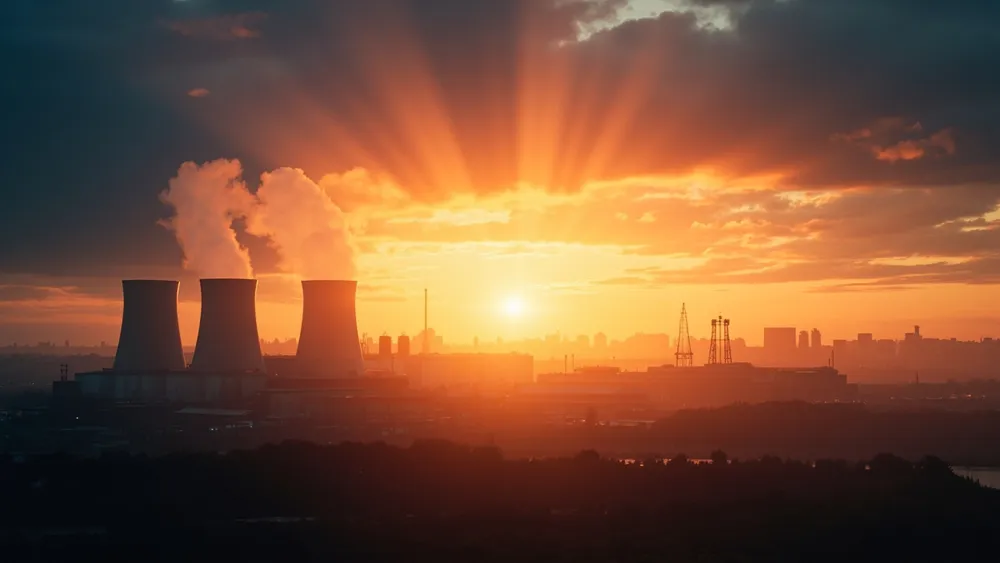Regulatory Overhaul in Nuclear Energy: New Dawn or Risky Gamble?

The recent overhaul of the Nuclear Regulatory Commission (NRC) initiated by President Trump marks a significant shift in the U.S. energy policy landscape, particularly in the realm of nuclear energy. This initiative, as outlined in his executive orders, aims to expedite the licensing process for new reactors and streamline regulatory pathways, allowing the U.S. to potentially realize a swift transition to advanced nuclear technologies. The implications of these regulatory reforms reverberate across various sectors, attracting attention from investors, industry executives, and policymakers alike, as stakeholders grapple with the future of nuclear power in an increasingly competitive energy market.
At the core of this transformation is a recognition of the challenges the nuclear industry has faced over recent decades, particularly regulatory delays which can stymie innovation and investment. With a commitment to a maximum 18-month licensing timeline for reactor approvals, the NRC is moving towards a paradigm that allows for greater agility— a necessity in a world where energy demands are shifting rapidly due to technological advancements and climate change concerns. The changes signify not just a push for nuclear power revival but also reflect a reaction to the rapidly expanding energy requirements driven by tech giants investing heavily in infrastructure related to artificial intelligence. Notably, nuclear stocks experienced a surge following the announcement, indicating a renewed investor confidence in a sector that has struggled with competition from cheaper fossil fuels, particularly in the wake of the shale boom that has depressed natural gas prices.
However, the initiative raises critical questions about the balance between efficiency and safety in a sector long plagued by high-profile accidents and public skepticism. The potential for staff reductions at the NRC could lead to an erosion of institutional knowledge and expertise, an unintended consequence that might adversely impact the safety oversight of existing and new reactors. Moreover, while speeding up processes could bolster domestic uranium mining and reactor construction, could this be at the expense of thorough safety assessments? Stakeholders must contemplate whether the urgency to scale nuclear energy re-establishes it as a viable solution while inadvertently heightening operational risks. The nuclear energy landscape is reminiscent of the pre-2008 financial crisis, wherein regulatory bodies faced pressures to accelerate approvals without comprehensive oversight.
Looking ahead, the newly increased momentum in the nuclear sector holds considerable promise, particularly as the world gears toward net-zero carbon emissions. However, stakeholders—ranging from institutional investors to utility companies and regulators—should remain vigilant. The legacy of nuclear disasters must not be forgotten in the race for energy solutions. In assessing the balance of risks and opportunities, it is essential that the conversation not only centers around profit and operational timelines but also incorporates transparent dialogues with communities and a robust regulatory framework that ensures public safety. The success of nuclear energy's resurgence hinges upon whether it can evolve from a history shadowed by catastrophe into a cornerstone of a clean and sustainable energy future. It is indeed a moment to ask: can the redefined regulatory environment sustain the dual objectives of haste and safety in nuclear energy expansion?
Read These Next

Shenzhen Launches First Overseas Pharmaceutical Industry Consortium
Shenzhen announced an overseas pharmaceutical consortium on May 24 to enhance global market expansion for local firms.

China-CEEC Business Ties: A Win-Win for Both Sides
BYD's new European headquarters boosts China-Central/Eastern Europe ties, promising thousands of jobs in automotive tech.

China Announces Push for High-Quality Development in National Development Zones
China's Ministry of Commerce introduces a plan to boost national development zones, focusing on quality, foreign investment, and global cooperation.
